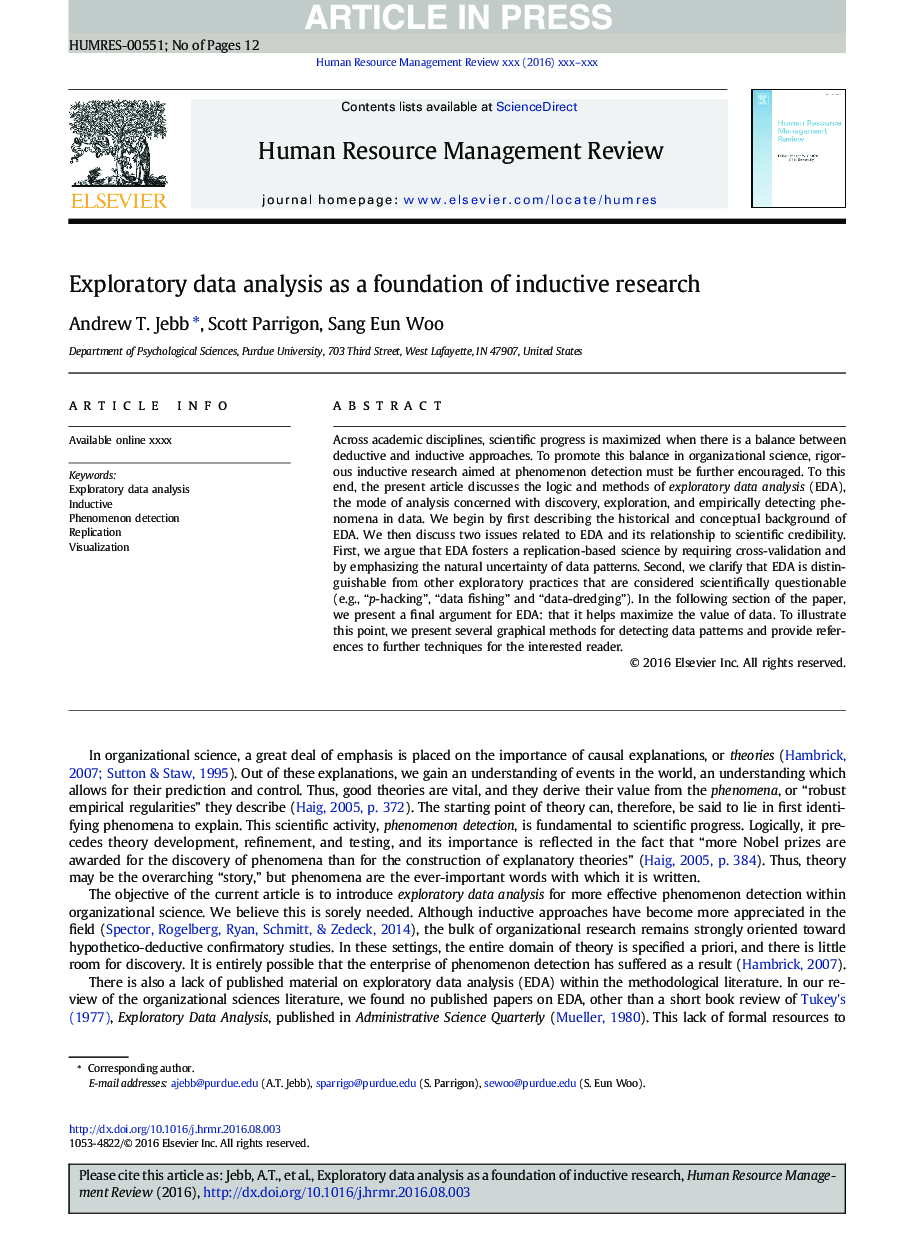| Article ID | Journal | Published Year | Pages | File Type |
|---|---|---|---|---|
| 5033662 | Human Resource Management Review | 2017 | 12 Pages |
Abstract
Across academic disciplines, scientific progress is maximized when there is a balance between deductive and inductive approaches. To promote this balance in organizational science, rigorous inductive research aimed at phenomenon detection must be further encouraged. To this end, the present article discusses the logic and methods of exploratory data analysis (EDA), the mode of analysis concerned with discovery, exploration, and empirically detecting phenomena in data. We begin by first describing the historical and conceptual background of EDA. We then discuss two issues related to EDA and its relationship to scientific credibility. First, we argue that EDA fosters a replication-based science by requiring cross-validation and by emphasizing the natural uncertainty of data patterns. Second, we clarify that EDA is distinguishable from other exploratory practices that are considered scientifically questionable (e.g., “p-hacking”, “data fishing” and “data-dredging”). In the following section of the paper, we present a final argument for EDA: that it helps maximize the value of data. To illustrate this point, we present several graphical methods for detecting data patterns and provide references to further techniques for the interested reader.
Related Topics
Social Sciences and Humanities
Business, Management and Accounting
Marketing
Authors
Andrew T. Jebb, Scott Parrigon, Sang Eun Woo,
